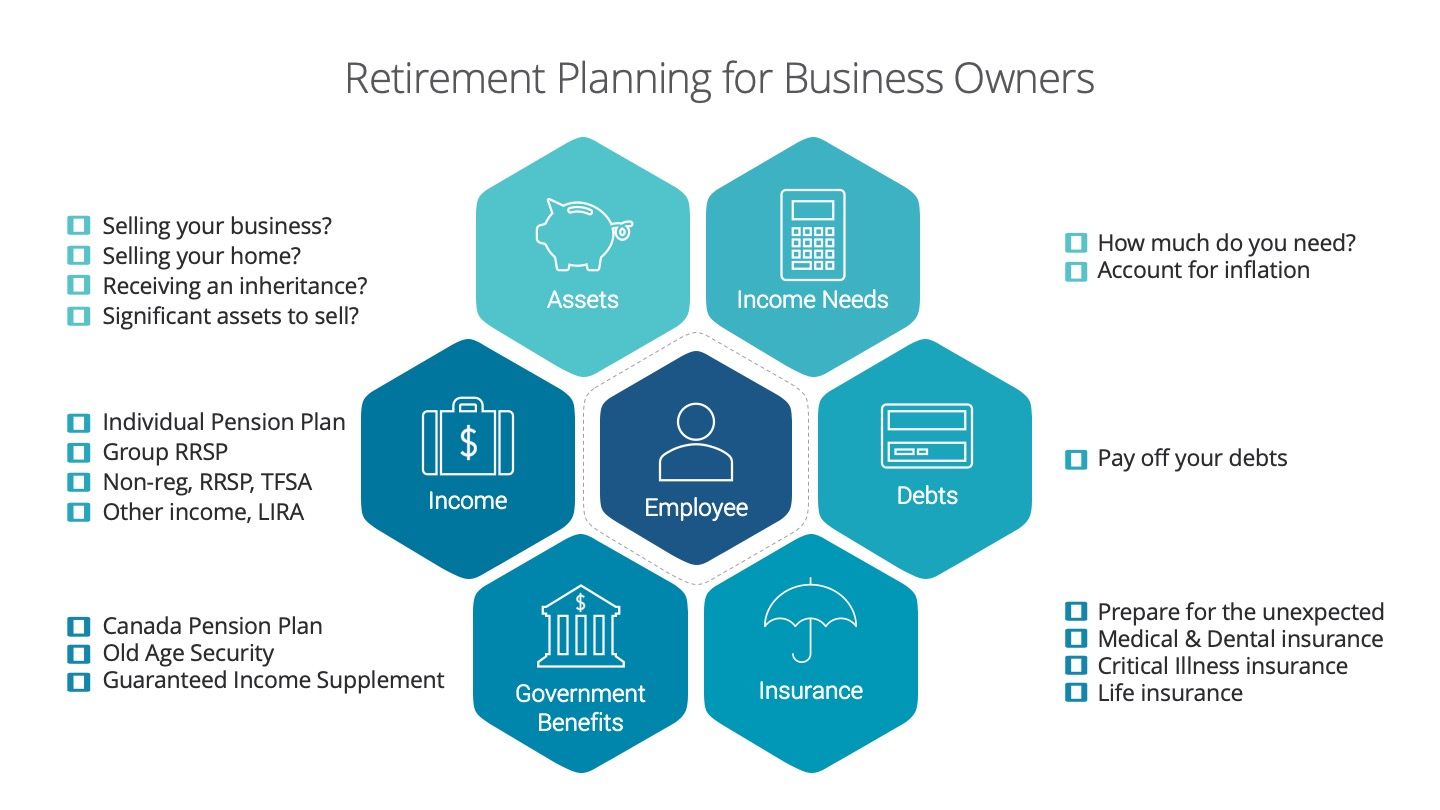In today’s fast-paced and ever-evolving business landscape, it’s crucial for business owners to not only focus on their current operations, but also plan for a secure and comfortable retirement. Retirement planning for business owners entails careful consideration of various financial, legal, and personal factors to ensure a smooth transition into the golden years. In this article, we will explore the key steps and strategies for effective retirement planning for business owners.
1. Start Early and Set Clear Goals
One of the biggest mistakes business owners make is delaying retirement planning until it’s too late. Time is a key factor in accumulating sufficient funds for retirement. By starting early, business owners can take advantage of compounding interest and prolonged investment growth. Begin by setting clear retirement goals – determine the desired lifestyle and income level during retirement, and factor in inflation and potential healthcare expenses.
2. Maximize Retirement Savings Contributions
Business owners have several retirement savings options at their disposal. A popular choice is a Simplified Employee Pension (SEP) IRA, where business owners can contribute up to 25% of their net self-employment income (up to $58,000 in 2021). Another option is a solo 401(k), allowing contributions of up to $58,000 plus an additional catch-up contribution for those aged 50 and above. It’s important to consult with a financial advisor or tax professional to determine the best retirement savings plan for specific circumstances.
3. Consider Business Succession Planning
Retirement often involves transitioning the business to new ownership or management. Business owners must carefully consider succession planning to ensure a smooth handover and protect their financial interests. Identify potential successors or buyers, and develop a clear succession plan that outlines the transfer of ownership, management responsibilities, and any necessary legal documentation such as buy-sell agreements or family trusts. Seek legal counsel to navigate the complex process of business succession.
4. Diversify Investments and Reduce Risk
Business owners typically have a significant portion of their wealth tied up in their businesses. To mitigate risk and ensure retirement security, it’s essential to diversify investments. Consider allocating assets to various investment vehicles such as stocks, bonds, real estate, and mutual funds. Diversification helps spread risk and potentially increases returns. Regularly review and adjust investment portfolios based on changing market conditions and retirement goals.
5. Plan for Health Insurance and Long-Term Care
Healthcare expenses can be a significant burden on retirees. Business owners should plan for health insurance and long-term care options well in advance. Research different health insurance plans and understand the coverage offered. Consider long-term care insurance to protect against the potentially high costs of nursing homes, assisted living, or in-home care. Adequate healthcare planning ensures peace of mind and guards against unexpected financial strain during retirement.
6. Continuously Monitor and Update the Retirement Plan
Retirement planning is not a one-time task but a continuous process. Business owners should regularly review their retirement plan to assess progress, reassess goals, and make necessary adjustments. Life circumstances and business conditions change over time, so it’s crucial to monitor investments, update beneficiary designations, and adapt the retirement plan accordingly. Consult with financial professionals annually or as needed to ensure the retirement plan remains aligned with evolving needs and objectives.
Conclusion
Retirement planning for business owners requires careful consideration of financial goals, business succession, investment strategies, healthcare planning, and continuous monitoring. By starting early, maximizing retirement savings contributions, diversifying investments, and planning for healthcare needs, business owners can ensure a financially stable and fulfilling retirement. Seek guidance from financial advisors, retirement specialists, and legal professionals to navigate the complexities of retirement planning as a business owner. With the right strategies in place, business owners can confidently embark on a new chapter in life while enjoying the fruits of their labor.

